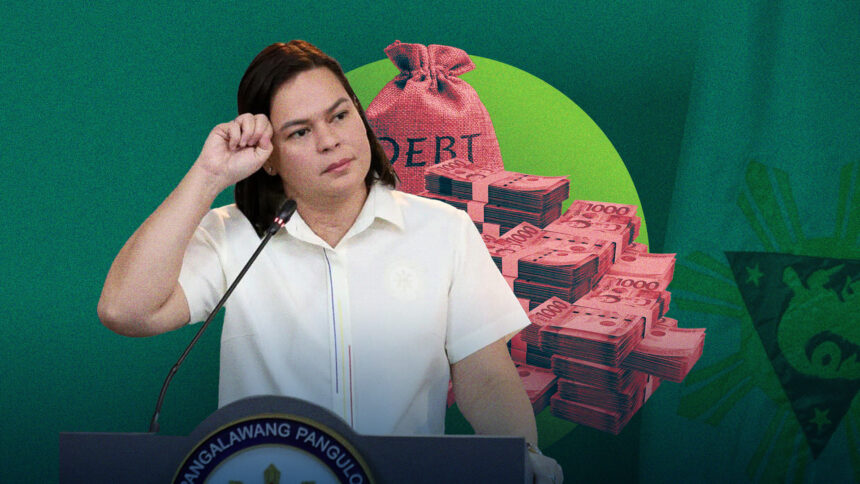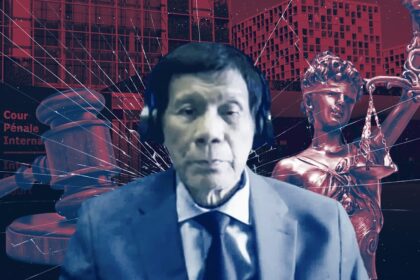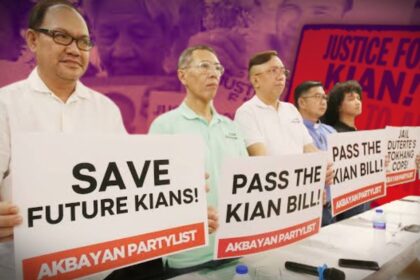In Philippine politics, “budget” means more than just numbers and statistics. It involves an “utang,” the everyday debt tied to promises made and promises kept. It is not just about pesos but also the trust, accountability, and commitment to serve without shortcuts.
Vice President Sara Duterte is once again asking for the people’s trust. This time, she is requesting a P733 million budget for the Office of the Vice President (OVP) for 2026. This amount is exactly the same as what was approved for 2025, after the Congress cut her original P2 billion proposal.
Duterte says she does not expect any increase as she does not have an alliance with the Marcos administration, implying that, “if you do not follow, you will not be given.”
On the surface, it may seem like a fair request. However, for many Filipinos, it feels like lending money to someone who hasn’t paid their last bill yet and won’t explain what it was for.
But government money isn’t a gift, it belongs to the public. Public officials borrow these and provide something for the greater good in return. Anyone who spends it for their benefit should be prepared to account for every cent.
The timing of Duterte’s request adds to its weight, as she could face impeachment, making her the first vice president in the post-EDSA era to go on trial while still in office.
The accusation that put her in this position is about spending P125 million in confidential funds within just 11 days. There was no detailed breakdown, no audit trail, and no clear answers.
The Commission on Audit later rejected the P73 million of that amount. However, there was no explanation given. Today, that debt – both to the public and to accountability – remains unpaid, a debt that has yet to be accounted for.
And yet here she is, asking to borrow from the nation’s money again.
To her supporters, Duterte’s office has been able to provide public services despite fewer resources through medical aid, burial support, and the Libreng Sakay program. But many of these efforts, she admits, will not expand and will be halted next year.
The feeding program PANsarap won’t continue. Medical assistance could be reduced. Yet, the debt from past silence lingers.
Because debt, when unpaid, doesn’t go away. It builds up until someone demands answers.
Still, the bigger question remains, can a public official keep borrowing from the nation’s trust and funds when past promises are still unfulfilled?
Duterte has said little about the impeachment proceedings themselves, only calling them political. She has even suggested that she might skip future budget discussions to protect her staff from what she describes as public embarrassment.
But transparency isn’t persecution; it’s part of holding public office. You cannot continue borrowing from the nation’s money by consistently demanding public funds while refusing public scrutiny.
Lawmakers repeatedly asked her for explanations about the confidential fund but received silence or deflection instead. That silence became the biggest reason for the budget cut.
Now, as the Senate acts as an impeachment court will decide her date. While Duterte’s defense focuses on her public service achievements, the charges include misused funds and even more serious claims, like allegedly plotting against the president.
Even her political positioning reveals a contradiction. While she distances herself from the president, Duterte still seeks support from a Congress controlled by both of their “allies.” She warns that being unaligned means fewer resources, but isn’t that the system her father once vowed to destroy, but failed?
In this context, utang na loob usually maintains political alliances. However, public service involves a different kind of debt — one owed to the people who trusted you initially, putting you in this position.
There is irony in how power works in the Philippines. A public servant who once moved quickly to spend confidential funds in 2022 now proceeds cautiously under public scrutiny. A vice president requests funding renewal while facing possible removal. There is a narrative of service accompanied by a silence about accountability.
Because trust in public service is more than just a virtue, it is an obligation. It is a kind of debt owed not just for votes, but for the everyday hopes that people place in leaders to act with integrity.
Utang isn’t always monetary. It is moral and institutional. And in public service, it should always be public.
When that kind of debt is left unresolved, when accountability is avoided, and silence is offered instead of answers, the cost is not just reputational. It ruins the public’s confidence in the institutions that are meant to serve them effectively and efficiently.
Until it is repaid, not with speeches or services alone, but with honesty or transparency, it remains a burden not just on the leader, but also on the very people she asks to trust her again.








